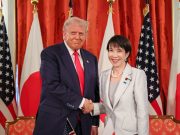(Singapore, 16.05.2025)A profound shift is underway in the financial workforce across Singapore and Asia Pacific, driven by entrepreneurial ambition, rising interest in sustainability, and growing anxiety over readiness for the AI-powered workplace of tomorrow. Today, these findings emerge from the ACCA’s 2025 Global Talent Trends report, the world’s most extensive survey of professionals in accountancy and finance.

The report draws on insights from over 10,000 respondents across 175 countries. In Singapore, 37% of finance professionals express ambitions to become entrepreneurs, while the figure rises to 52% across the broader Asia Pacific region. Accountancy, long seen as a traditional pathway to corporate stability, is now increasingly viewed as a launchpad for business ownership and innovation. This entrepreneurial mindset is gaining recognition from employers who see value in attributes like commercial agility and innovation—skills that are becoming central to modern finance functions.
Mobility is also on the rise. In Singapore, 65% of finance professionals say they expect to change roles within the next two years, and more than half anticipate their next role will be outside their current organisation. These trends pose real challenges for talent retention and underline a generational shift toward career agility, purpose-driven work, and global exposure.
Sustainability has emerged as a powerful force shaping career aspirations. A full 61% of respondents in Singapore say they are interested in pursuing finance roles focused on environmental and sustainability issues. As ESG considerations gain prominence in business strategy and regulation, the demand for finance professionals with sustainability expertise continues to climb. Yet, while this demand grows, there is mounting concern about preparedness in another domain—artificial intelligence.
Despite Singapore’s reputation as a digitally advanced economy, 65% of respondents are worried they are not developing the AI skills they will need in the near future. Only 27% say their organisations currently offer opportunities to acquire AI-related competencies. This represents a critical gap in organisational development, especially as AI reshapes the nature of finance work and decision-making. The disconnect between skill development and technological transformation may ultimately weaken competitiveness if left unaddressed.
Daniel Leung, Country Manager of ACCA Singapore, notes that this is a defining moment for the profession: “As we are learning to adopt AI-powered tools and meeting sustainability demands, the Singapore accountancy profession is redefining itself—not just in terms of technical skills, but in how we create value as strategic partners. Professionals are increasingly seeking purposeful work that addresses high-value challenges organisations face today. It is imperative for employers to challenge the status quo and invest in their talent to ensure long-term resilience.”
Workplace wellbeing remains an unresolved issue. Fifty-three percent of Singapore respondents report that work pressures negatively affect their mental health. While this reflects a slight improvement over previous years, it signals a sustained need for mental health support and balanced work policies. Hybrid work models are preferred by 79% of Singapore respondents, but 41% still work full-time in the office, exposing a potential mismatch that could lead to disengagement or skill stagnation if not addressed equitably.
The report also flags broader shifts in workforce behaviour. One in three finance professionals in Singapore are now engaged in side hustles or additional jobs, suggesting both a hunger for supplementary income and a desire for broader personal fulfilment outside of traditional employment frameworks. Meanwhile, global mobility remains high on the agenda, with 56% expressing a desire to pursue international career opportunities.
Jamie Lyon, ACCA’s Global Head of Skills, Sectors, and Technology, reflected on the data: “One of the most exciting themes this year is how accountancy training is being recognised as a foundation for entrepreneurial capability. It shows how dramatically career ambitions are evolving, even within traditionally structured professions.”
In a world where finance professionals are increasingly expected to be innovators, strategists, and changemakers, the report paints a vivid picture of a profession in transition. Singapore stands at the heart of this transformation—facing both the opportunities and the growing pains of redefining what it means to build a resilient, relevant, and forward-looking financial workforce.




































